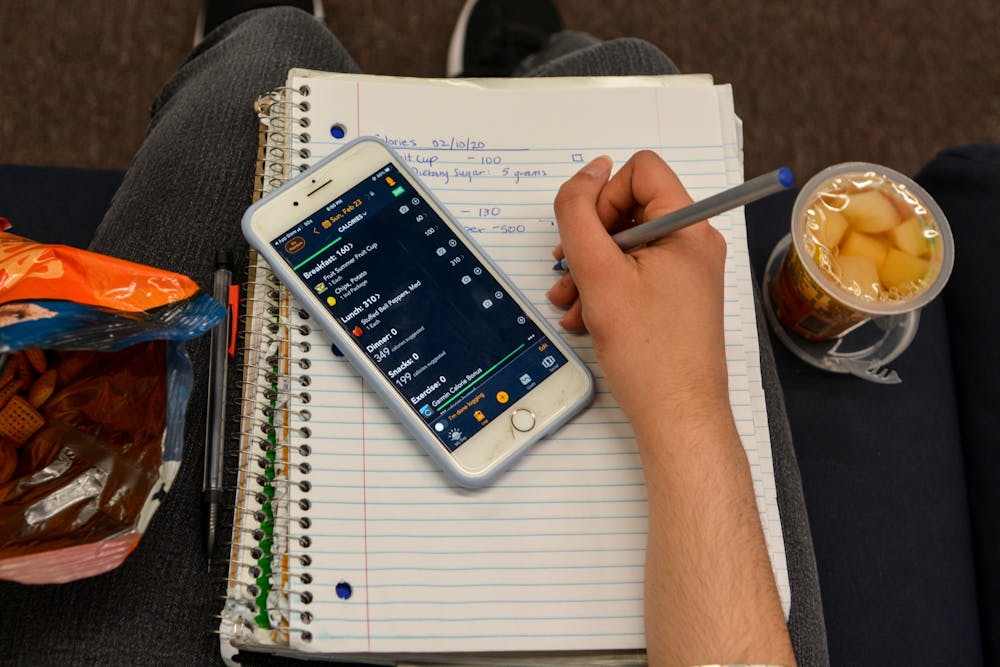
Nurses are best known for the time we spend at the patient’s bedside. We laugh with patients during some of the most joyful times and hold their hands through some of the most challenging moments of life.
However, beyond the compassion that nurses show for each and every one of our patients, we are also vital educators in the process of helping patients lead healthier lives. Nurses provide education on medications, treatment plans, and life after discharge to patients of all demographics and medical backgrounds.
One of the most salient educational topics that nurses address is nutrition. The prevalence of obesity is a staggering 39.8% in the United States, with disparities seen along lines of race and geography. Nurses have a responsibility to understand what proper nutrition means and how to impart this knowledge to their patients.
Along with my fellow Nursing students, I took the course NURS 065: Fundamentals of Nutrition during my first year with professor Monique Dowd. She is a registered dietician-nutritionist and certified diabetes educator with a wealth of clinical experience. In her class we learned about the importance of nutrition in disease prevention, as an improper diet can lead to a variety of chronic diseases such as heart disease and diabetes. Additionally, we studied how essential vitamins and nutrients play a role in the various stages of life along with a number of other topics.
One assignment in particular that we completed during the course, a dietary analysis project, involved tracking our personal dietary intake for three days and then analyzing the data to understand how our eating habits compared to the recommendations set by the National Academy of Medicine. While I felt comfortable completing an assignment where I tracked and analyzed my eating habits, I can certainly understand that some may feel distressed or uncomfortable looking at their food intake more critically, due to a variety of factors such as a history of an eating disorder.
Eating disorders affect millions of Americans. Currently, the typical college student is the most vulnerable to disordered eating, as the median age of onset is 18 to 21 years old. I have seen it in some of my own friends and peers; as a nursing student and member of the Penn community, I hope anyone who has concerns about their diet or eating habits will reach out to campus resources such as Counseling and Psychological Services or Student Health Service.
For students who prefer a depersonalized alternative to the dietary analysis project, professor Dowd allows any student to complete an alternative assignment without having to provide a justification. Students can work with professor Dowd to determine a suitable alternative such as analyzing the diet of a typical patient instead. Many Nursing students appreciate professor Dowd’s warm and approachable style regarding not only this assignment, but the course at large.
By learning more about my own eating habits, I feel like I am in a much better position to properly counsel patients on how they can make positive changes to their own diet. A patient with diabetes needs to know which foods will spike their blood sugar, and someone with kidney disease must be aware of which foods will not exacerbate their condition. I have already provided this nutritional education to patients in a clinical setting, and professor Dowd’s class and the dietary analysis project have helped me better provide this instruction.
This nutrition course cannot be boiled down to a calorie counting class, because to do so would be undermining the depth of knowledge nurses have gained as a result of its presence within the nursing curriculum. We have a duty to educate ourselves in all matters that have value to our patients, including nutrition.
Thank you, NURS 065 and professor Dowd, for helping to provide my fellow Nursing students and me with the skills needed to properly educate patients regarding nutrition.
TOMMY SEAMAN is a Nursing and Wharton junior from Los Gatos, California. His email address is tseam@nursing.upenn.edu.
The Daily Pennsylvanian is an independent, student-run newspaper. Please consider making a donation to support the coverage that shapes the University. Your generosity ensures a future of strong journalism at Penn.
Donate



